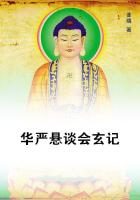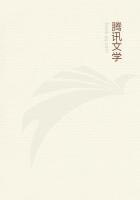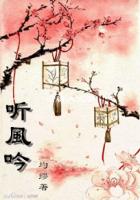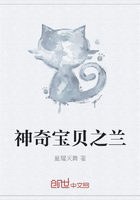Does he suppose, in his foolishness, that after working day and night for twenty years in heresy and schism, on becoming a Catholic, I should sit in an easy-chair and fold my hands all the rest of my life?' But his secret thoughts were of a different caste. 'I am conscious of a desire,' he wrote in his Diary, 'to be in such a position: (I) as I had in times past; (2) as my present circumstances imply; (3) as my friends think me fit for; and (4) as I feel my own faculties tend to.
'But, God being my helper, I will not seek it by the lifting of a finger or the speaking, of a word.'
So Manning wrote, and thought, and prayed; but what are words, and thoughts, and even prayers, to the mysterious and relentless powers of circumstance and character? Cardinal Wiseman was slowly dying; the tiller of the Church was slipping from his feeble hand; and Manning was beside him, the one man with the energy, the ability, the courage, and the conviction to steer the ship upon her course. More than that; there was the sinister figure of a Dr. Errington crouching close at hand, ready to seize the helm and make straight--who could doubt it?--for the rocks. In such a situation the voice of self-abnegation must needs grow still and small indeed. Yet it spoke on, for it was one of the paradoxes in Manning's soul that that voice was never silent. Whatever else he was, he was not unscrupulous. Rather, his scruples deepened with his desires; and he could satisfy his most exorbitant ambitions in a profundity of self-abasement. And so now he vowed to Heaven that he would SEEK nothing-- no, not by the lifting of a finger or the speaking of a word. But, if something came to him--? He had vowed not to seek; he had not vowed not to take. Might it not be his plain duty to take? Might it not be the will of God?
Something, of course, did come to him, though it seemed for a moment that it would elude his grasp. Wiseman died, and there ensued in Rome a crisis of extraordinary intensity. 'Since the creation of the hierarchy,' Monsignor Talbot wrote, it is the greatest moment for the Church that I have yet seen.' It was the duty of the Chapter of Westminster to nominate three candidates for succession to the Archbishopric; they made one last effort, and had the temerity to place upon the list, besides the names of two Old Catholic bishops, that of Dr. Errington. It was a fatal blunder. Pius IX was furious; the Chapter had committed an 'insulta al Papa', he exclaimed, striking his breast three times in his rage. 'It was the Chapter that did it,' said Manning, afterwards; but even after the Chapter's indiscretion, the fatal decision hung in the balance for weeks. 'The great point of anxiety with me, wrote Monsignor Talbot to Manning, 'is whether a Congregation will be held, or whether the Holy Father will perform a Pontifical act. He himself is doubting. I therefore say mass and pray every morning that he may have the courage to choose for himself, instead of submitting the matter to a Congregation. Although the Cardinals are determined to reject Dr.
Errington, nevertheless I am afraid that they should select one of the others. You know very well that Congregations are guided by the documents that are placed before them; it is for this reason that I should prefer the Pope's acting himself.'
But the Holy Father himself was doubting. In his indecision, he ordered a month of prayers and masses. The suspense grew and grew. Everything seemed against Manning. The whole English episcopate was opposed to him; he had quarrelled with the Chapter; he was a convert of but few years' standing; even the congregated Cardinals did not venture to suggest the appointment of such a man. But suddenly, the Holy Father's doubts came to an end. He heard a voice-- a mysterious inward voice-- whispering something in his ear. 'Mettetelo li! Mettetelo li!' the voice repeated, over and over again. Mettetelo li! It was an inspiration; and Pius IX, brushing aside the recommendations of the Chapter and the deliberations of the Cardinals, made Manning, by a Pontifical act, Archbishop of Westminster.
Monsignor Talbot's felicity was complete; and he took occasion in conveying his congratulations to his friend, to make some illuminating reflections upon the great event. 'MY policy throughout,' he wrote, 'was never to propose you DIRECTLY to the Pope, but, to make others do so, so that both you and I can always say that it was not I who induced the Holy Father to name you-- which would lessen the weight of your appointment. This I say, because many have said that your being named was all my doing. I do not say that the Pope did not know that I thought you the only man eligible-- as I took care to tell him over and over again what was against all the other candidates-- and in consequence, he was almost driven into naming you. After he had named you, the Holy Father said to me, "What a diplomatist you are, to make what you wished come to pass!"
'Nevertheless,' concluded Monsignor Talbot, 'I believe your appointment was specially directed by the Holy Ghost.'
Manning himself was apparently of the same opinion. 'My dear Child,' he wrote to a lady penitent, 'I have in these last three weeks felt as if our Lord had called me by name. Everything else has passed out of my mind. The firm belief that I have long had that the Holy Father is the most supernatural person I have ever seen has given me this feeling more deeply. 'Still, I feel as if I had been brought, contrary to all human wills, by the Divine Will, into an immediate relation to our Divine Lord.'
'If indeed,' he wrote to Lady Herbert, 'it were the will of our Divine Lord to lay upon me this heavy burden, He could have done it in no way more strengthening and consoling to me. To receive it from the hands of His Vicar, and from Pius IX, and after long invocation of the Holy Ghost, and not only without human influences, but in spite of manifold aria powerful human opposition, gives me the last strength for such a cross.'















